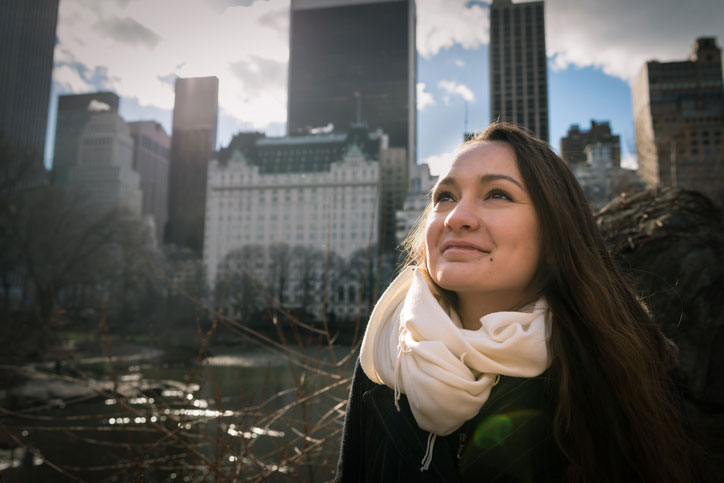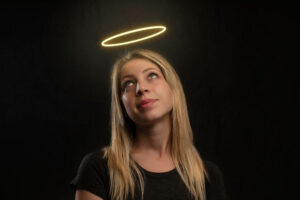Written by Scott Wilson

There are plenty of things about New York that are excessively complex when it comes to social work. A visit to any HRA Benefits office or a phone call to the New York City Housing Authority will quickly show you just how out-of-hand the social services bureaucracy can be in the Empire State.
So it’s kind of a miracle that the licensing process to become a social worker here is both well-documented, tightly run, and amazingly straightforward.
Still, it’s always good to have a solid run-down on exactly what forms you need to fill out and in what order.
There are well-traveled and clearly defined paths to qualify for the license required to become a social worker in New York.
With Just Two Social Worker License Options, Your Choices are Easy in New York
Much of the simplicity boils down to the fact that there are only two levels of social work licensure in New York:
- Licensed Master Social Worker (LMSW)
- Licensed Clinical Social Worker (LCSW)
On top of that, the requirements for each are fully aligned, since the LMSW is designed to serve as a steppingstone for those who choose to move on to the LCSW.
If you’re unclear about the scope of practice of these two licenses and how to make sure you attain the one that aligns with your career goals, see our LMSW vs. LCSW guide.
The base qualifications for both licenses laid out by the New York State Education Department (NYSED) Office of the Professions are:
- Be of good moral character
- Be at least 21 years of age
- Have completed a Master of Social Work program
- Complete coursework in an approved program in the identification and reporting of child abuse.
Licensed Master Social Worker candidates then simply have to pass the ASWB (Association of Social Work Boards) Masters examination to meet the final requirement for licensure.
You can only become a Licensed Clinical Social Worker after first completing all the requirements described above, including applying for and being granted the LMSW license. On top of that, there’s three other additional requirements you’ll have to meet:
1. You must have completed at least 12 semester hours of clinical coursework as part of your MSW program
Since the LCSW license requires additional clinical coursework as part of your MSW, you’ll be making your decision to earn clinical licensure when choosing your MSW program.
2. You must gain at least 3 years of post-MSW supervised clinical practice experience on the job
You’ll be hired on and begin working under your LMSW license while getting the post-MSW supervised experience required to earn the LCSW.
3. Then, as the final step to earning your LCSW credential, you have to pass the ASWB (Association of Social Work Boards) Clinical examination on top of the Masters exam you already passed.
It’s entirely possible to retain the LMSW for your entire career, but it’s safe to say that almost all LMSW social workers in New York are on their way to becoming LCSWs… and it’s a sure bet that all LCSWs were LMSWs at some point unless they were originally licensed in another state.
What Exactly Does it Mean to ‘Be of Good Moral Character’?
 You see the phrase everywhere, but rarely does anyone tell you exactly what it is. Does it mean someone who holds the door open for the person behind them? Or who tips their server generously?
You see the phrase everywhere, but rarely does anyone tell you exactly what it is. Does it mean someone who holds the door open for the person behind them? Or who tips their server generously?
It’s pretty fair to say that anyone interested in dedicating their lives to helping other people is a pretty good person, but the legal standard isn’t quite that straightforward.
Part 28 of the Rules of the New York Board of Regents, which governs disciplinary hearings for state licensed professions, sets out the standard that, “applicants shall not have been convicted of a crime or have committed an act which raises a question as to their moral character.”
In actual practice, license revocations have occurred under this clause for maintaining relationships with clients outside of professional contact, failures to maintain appropriate boundaries with clients, being convicted of Driving While Intoxicated, falsifying records, and committing other unspecified crimes.
For applicants, it largely means that your record should be clear of criminal violations, and, if licensed in another jurisdiction, you should not have any complaints or disciplinary actions lodged against you.
Being human means it’s not always easy to do the right thing, but social workers have to meet the highest standards to hold the public trust.
Checking All the Boxes in Your New York Social Work License Application
You’ll find that very nearly all CSWE-accredited MSW programs operating in New York are also named on the list of MSW programs registered with the NYSED.
(NOTE: The NYSED, Office of the Professions is a busy state agency, and as such may fall behind in maintaining its list of registered programs. We identified more than one school that has closed or changed names, and it’s possible other programs have registered since the list was last updated. It’s safe to conclude that any CSWE-accredited MSW operating in the state meets NYSED standards for licensure, but we advise you to talk to your school of choice about this as part of your school selection process.)
New York State MSW programs fall into two categories based on the license they’re aimed at:
- LMSW Qualifying
- LCSW Qualifying
The LCSW-qualifying group all include the additional clinical coursework needed to become an LCSW.
Any MSW that meets the higher bar for LCSW licensure will ALSO be an LMSW-qualifying program… but if you take a strictly LMSW-qualifying program, you won’t reach the bar for LCSW licensure without taking additional required clinical coursework. But the good news is your decision isn’t set in stone when enrolling in your MSW. You can always take the additional clinical courses later through a post-MSW certificate program.

The process of applying for both the LMSW and LCSW licenses is nearly identical. Your best friend and first stop should be the NYSED Office of the Professions website.
There, you’ll complete a basic set of forms to start the process of verifying your experience and education credentials for licensure. Some of these forms are available to be filled out online; others will have to be printed out and passed along to your college and your supervisors to complete.
There are only two forms to fill out for LMSW candidates:
- Form 1 - Application for Licensure (Online) - Includes all your basic details such as name, address, etc. Must be submitted with a $294 registration fee.
- Form 2 - Certification of Professional Education - Validates your attendance and graduation from a registered NYSED MSW program. Note also that this form must be sent directly by your social work school; you may not submit it directly. (In the event that your program isn’t registered with the NYSED, your Form 2 submissions must include an official transcript, as well as course syllabi or other supporting documentation to ensure that the courses on that transcript meet New York standards.)
LCSW candidates will complete two additional forms:
- Form 4 - Applicant Experience Record - A basic outline of your supervised post-MSW practice experience, listing supervisors, locations, and dates.
- Form 4B - Certification of Experience for LCSW - Most applicants will have multiple experience forms to submit, since they are the verification from each supervisor that your Form 4 submissions are correct. These must be submitted to NYSED directly by the supervisor.
On the Path to Social Work Licensure in New York, a Limited Permit Can Be a Great Accommodation
For both types of license, NYSED recognizes that issues with scheduling or the potential need to re-test may hold up your ability to submit the required passing score on the relevant ASWB exam.
In those cases, you may be allowed to obtain a limited permit that gives you authorization to practice under general supervision for up to one year while waiting to pass the exam.
Failing an ASWB exam on your first try triggers a mandatory 90-day waiting period before your next attempt, so a limited permit allows you to carry on with your career while you wait.
The process for obtaining the limited permit mirrors what is required for full licensure. You will first submit all the other required forms and documentation as necessary for your license.
Only after that paperwork has been approved, you will submit Form 5 – Application for Limited Permit. Form 5 can be submitted online and costs $70. It must be accompanied by a Form 5CS – Certification of Supervisor for Limited Permit, which has to be filled out in part by the supervisor who will oversee you during your temporary authorization period, but which you can submit yourself to NYSED.
Earning a New York Social Worker License via Reciprocity
It’s not uncommon to come in as a licensed social worker from another state and take advantage of the NYSED LCSW endorsement option. This keeps social workers who have already gone through licensure steps and been practicing for a number of years from having to start over again from scratch to get a license in New York.
In fact, it’s only available to social workers who have not only been clinically licensed in other jurisdictions, but who also have at least 10 years of verified practice within the last 15 years before making their application in New York.
Only the LCSW credential is available through this path, so you must already hold a similar clinical license in the state you are coming from.
LMSW credentials from other states do not count, and anyone seeking to become an LMSW in New York will have to follow all of the steps above.
The process for LCSWs seeking endorsement is very similar to the steps outlined above for applicants with an MSW from a university not pre-approved by NYSED. Additional paperwork also has to be filed to validate your out-of-state practice experience, including:
- Form 3 - Verification of Other Professional Licensure/Certification
- Form 4E - Endorsement of Experience Record
- Form 4F - Certification of Licensed Experience
Even if you take the endorsement path to social work licensure in New York, you end up with the same scope of practice in the end and the right to help residents of the Empire State live better and fuller lives.
